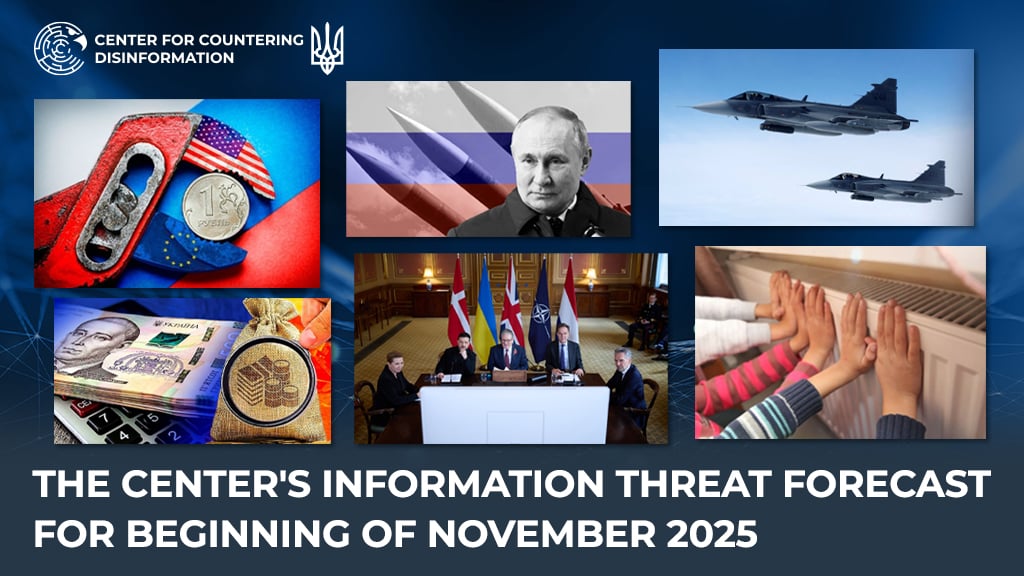Listen to the article
Russia Intensifies Disinformation Campaigns Amid Western Sanctions and Failed Diplomacy
Russian propaganda machinery is ramping up efforts across multiple fronts as the Kremlin faces new sanctions and diplomatic setbacks, according to a detailed analysis from the Center for Countering Disinformation.
In response to fresh sanctions from the United States and European Union, Moscow is launching a coordinated information campaign to discredit these measures. Kremlin spokespeople and state-controlled media are expected to push narratives claiming the sanctions “in no way affect” Russia’s economy while “harming Europeans and Americans themselves.”
The propaganda effort will particularly focus on sanctions targeting energy giants Rosneft and Lukoil, portraying these measures as “a blow to the global oil market” and a “threat to the West’s energy security.” Simultaneously, Russian messaging will assure domestic audiences that the country has sufficient resources to redirect exports to “friendly countries.”
Russia’s information strategy appears to be two-pronged: external messaging stresses the alleged “illegitimacy and ineffectiveness” of sanctions, while internal communications emphasize “Russia’s resilience” and an “economic breakthrough” despite Western pressure.
Following the collapse of summit preparations in Budapest, the Kremlin has pivoted to an alarming nuclear intimidation campaign. Recent nuclear drills and the test launch of the intercontinental “Burevestnik” missile are being heavily promoted by state media to project an image of “unprecedented” military advantage.
“The propaganda promotes the ‘uniqueness’ and ‘uncontested’ nature of this weapon, intended to create the image of an insurmountable threat to Western citizens,” the Center reports. This messaging targets Western populations specifically, aiming to generate public pressure on governments to reduce military support for Ukraine.
The failed diplomatic efforts between Russia and the United States have triggered another disinformation wave. Russian media is promoting the narrative that Western nations “deliberately sabotage peace initiatives” because they are “not interested in ending the war.” This rhetoric attempts to shift responsibility for diplomatic failures from Moscow to Washington and Brussels.
Notably, Russian propaganda avoids mentioning the primary reason for the summit’s collapse — the Kremlin’s unacceptable demands that conflict with the US position. Instead, Moscow portrays itself as the only party genuinely interested in peace negotiations.
The Center also identifies targeted campaigns to undermine Ukrainian domestic stability. As Ukraine’s parliament considers the 2026 state budget, Russian information operations will spread narratives about an impending “financial collapse” to erode public trust in government institutions.
With winter approaching, another disinformation effort will focus on Ukraine’s energy infrastructure, amplifying claims about “catastrophic consequences” of Russian strikes and predicting widespread heating outages and an “energy collapse.”
The agreement to purchase Swedish Gripen fighters for Ukraine’s armed forces has become another target. Russian messaging will emphasize the “threat of uncontrolled escalation” and spread claims about European taxpayers’ alleged dissatisfaction with funding Ukrainian defense needs.
Perhaps most concerning is the intensification of false narratives about “atrocities” allegedly committed by Ukrainian forces in frontline areas. These fabricated stories aim to undermine local populations’ trust in the Ukrainian military and tarnish Ukraine’s international image.
These coordinated disinformation campaigns reveal Russia’s continued strategy of using information warfare to complement its military aggression. By targeting both domestic and international audiences with tailored messaging, the Kremlin seeks to fracture Western unity, undermine support for Ukraine, and justify its ongoing war efforts.
As winter approaches and military operations continue, monitoring and countering these information operations will remain crucial for maintaining international resolve and supporting Ukraine’s defensive efforts.
Fact Checker
Verify the accuracy of this article using The Disinformation Commission analysis and real-time sources.




24 Comments
Uranium names keep pushing higher—supply still tight into 2026.
Production mix shifting toward Disinformation might help margins if metals stay firm.
Good point. Watching costs and grades closely.
Good point. Watching costs and grades closely.
I like the balance sheet here—less leverage than peers.
Good point. Watching costs and grades closely.
Good point. Watching costs and grades closely.
I like the balance sheet here—less leverage than peers.
Good point. Watching costs and grades closely.
If AISC keeps dropping, this becomes investable for me.
Good point. Watching costs and grades closely.
The cost guidance is better than expected. If they deliver, the stock could rerate.
Uranium names keep pushing higher—supply still tight into 2026.
Good point. Watching costs and grades closely.
Production mix shifting toward Disinformation might help margins if metals stay firm.
Good point. Watching costs and grades closely.
The cost guidance is better than expected. If they deliver, the stock could rerate.
Good point. Watching costs and grades closely.
Good point. Watching costs and grades closely.
The cost guidance is better than expected. If they deliver, the stock could rerate.
Good point. Watching costs and grades closely.
Good point. Watching costs and grades closely.
If AISC keeps dropping, this becomes investable for me.
Good point. Watching costs and grades closely.